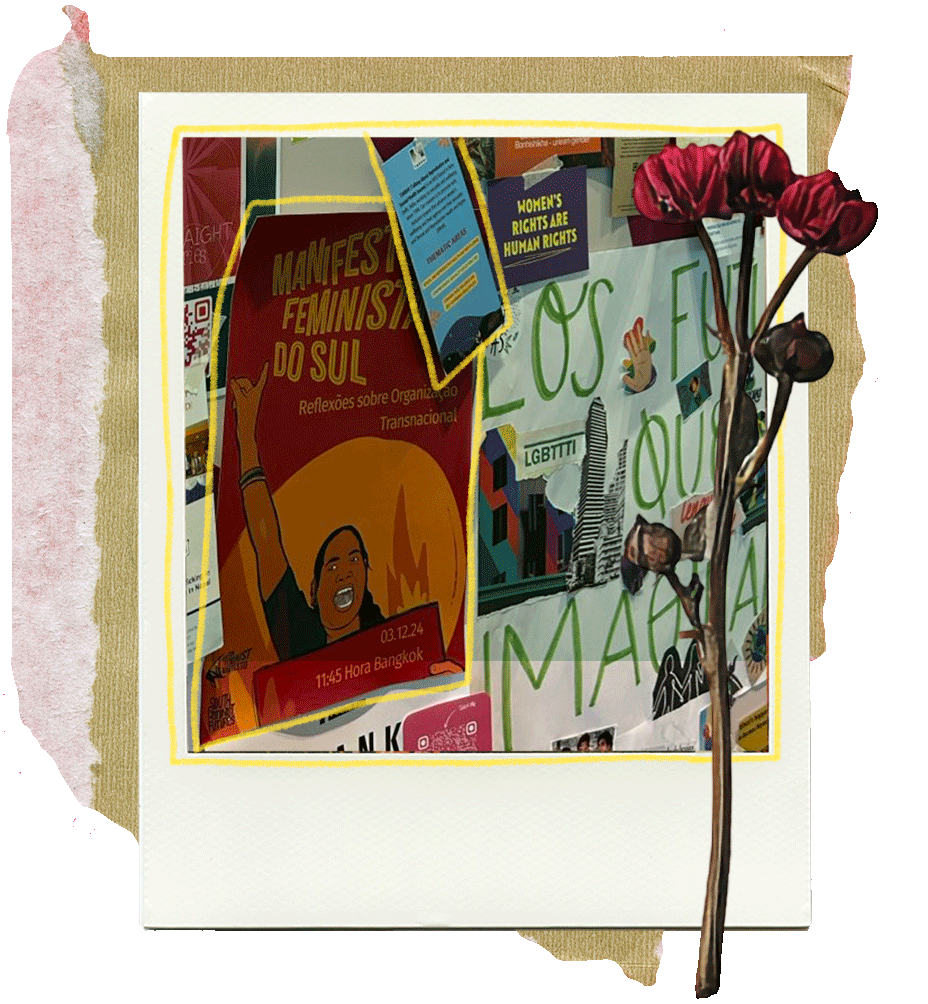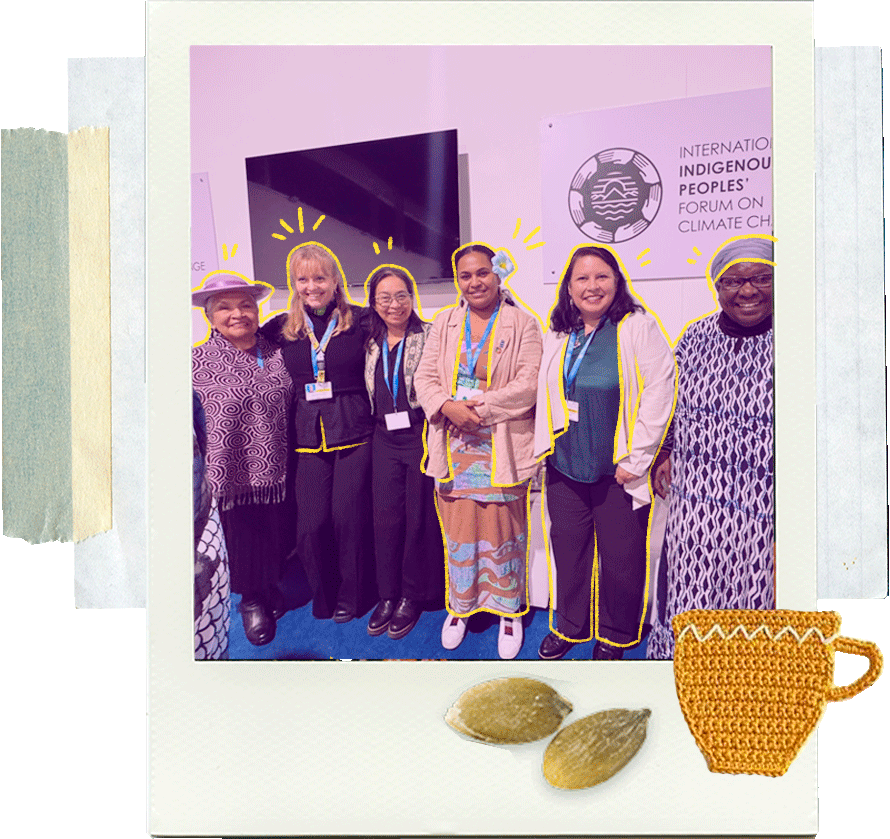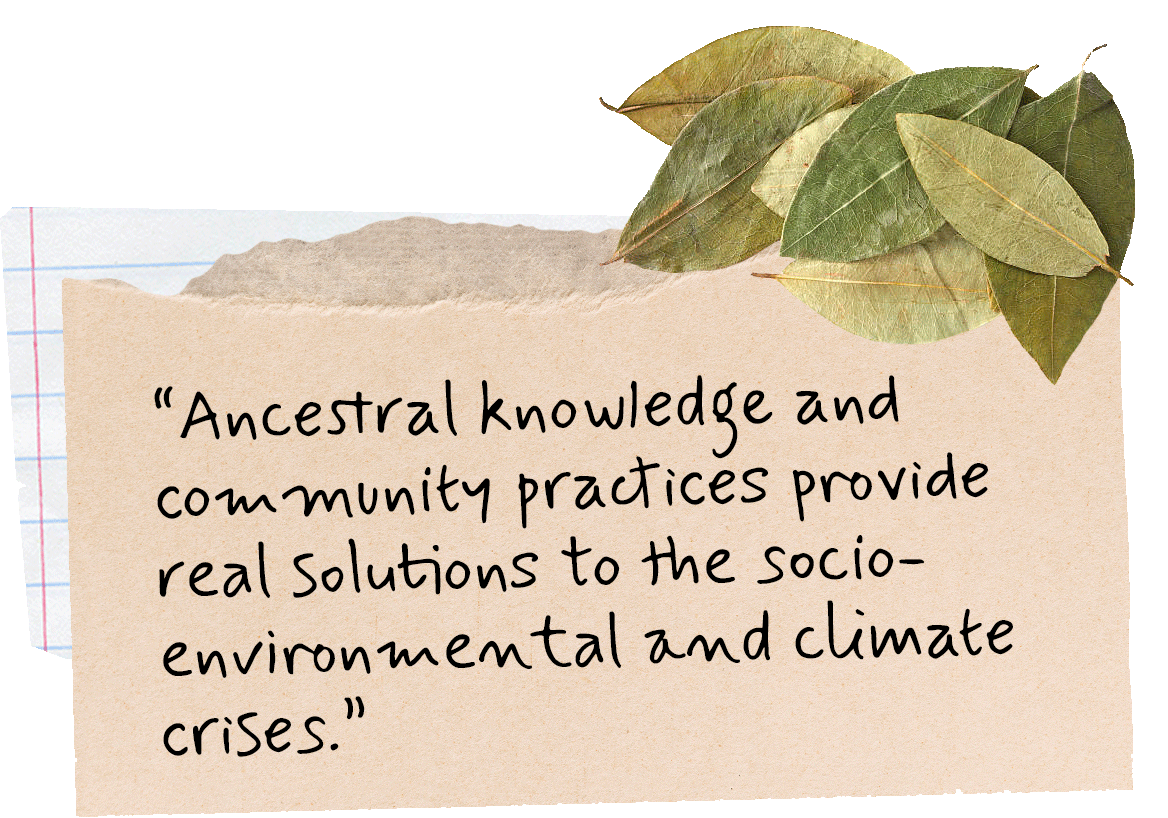
Climate Solutions with
Gender Justice
The Global Alliance for Green and Gender Action (GAGGA) is an alliance led by FCAM in collaboration with Mama Cash and Both ENDS, which addresses the climate crisis, biodiversity loss, and gender inequality. The initiative includes 26 women’s and socio-environmental funds, 42 NGOs, and 460 grassroots organizations in 44 countries in Africa, Latin America, Asia, the Pacific, and Europe.
GAGGA supports communities affected by the climate crisis, highlighting their ancestral knowledge and community practices to offer real solutions to the socio-environmental and climate crisis.
In 2024, we actively engaged in advocacy; here are a few highlights regarding the conceptualization and organization of the following reflection–action spaces:
At COP 29, with the session “Local Adaptation as a Means to Achieving Gender-Fair Climate Policy and Finance,” in partnership with the British government. The session demonstrated how grassroots solutions can inform global policy, particularly by redirecting climate change funding toward community-led initiatives.
At the 15th AWID Forum, we organized the session “Raising Ambition on Feminist Climate Action: From Challenges to Actionable Strategies.” GAGGA partner grassroots organizations, government representatives, private foundations, and alliance funders participated, sharing approaches, priorities, and concrete examples of the work being done in different communities.

We have also launched a new initiative together with the International Analog Forestry Network (IAFN), the Inter-American Association for Environmental Defense (AIDA), the Tierra Viva Fund, Fundo Casa, Both Ends, and the Women’s Environment and Development Organization (WEDO). Our goal is to strengthen interaction and collaboration between civil society organizations in Latin America and National Designated Authorities of the Green Climate Fund (GCF). This initiative provides tools that facilitate access to GCF funds for local women’s groups so that climate projects respond to community needs with a gender perspective.



